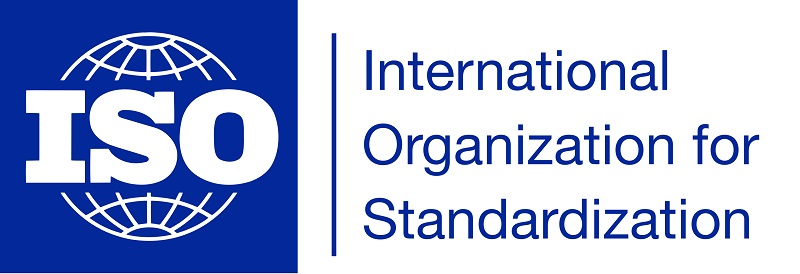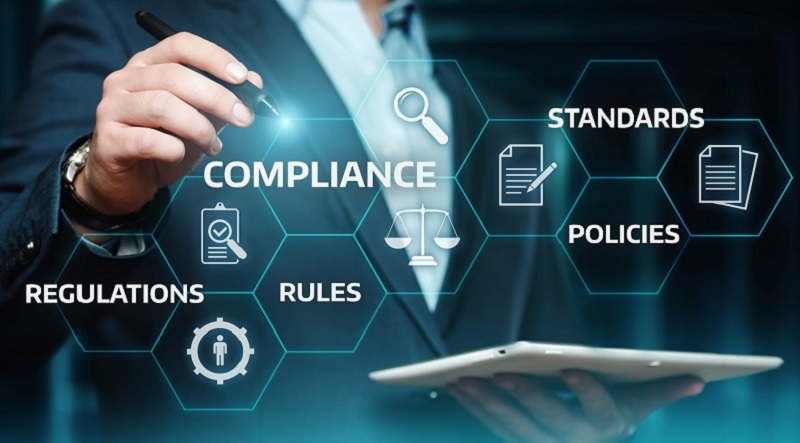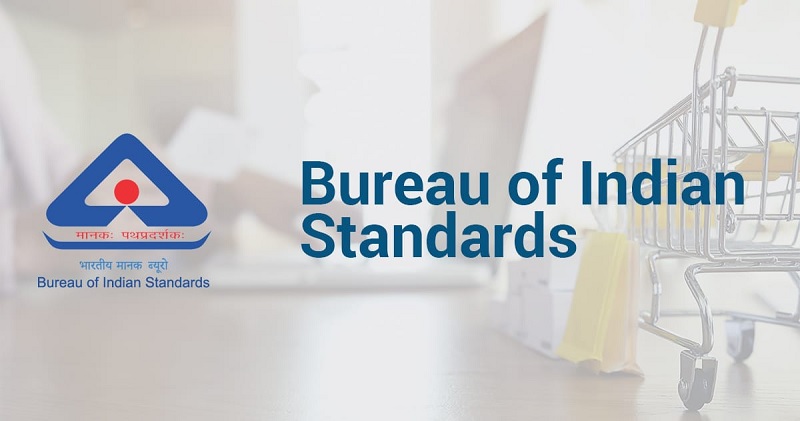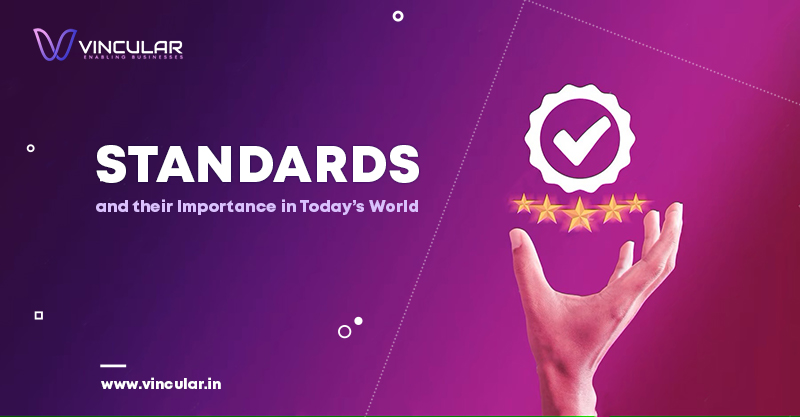In today’s ever-changing and interconnected world, it’s impossible to live without standards.
Just imagine you wake up in the morning and enjoy some morning news updates on your smart speaker connected to the internet via a Wi-Fi route.
Then you go to the Gym and burn a lot of calories and monitor your calories from your smartwatch while enjoying music on your favourite earphones connected wirelessly to your smartphone in your pocket.
After coming back from the Gym, you rush towards the office for your attendance and mark your attendance from a fingerprint scanner or some biometric device marking your attendance automatically.
Not only electronics from daily food, furniture, vehicles, building materials, household items plug switches, dryers, AC, bioplastic bags, and water bottles to medical wellness products and devices, and so on the standard makes it possible for thousands of items to be used in a day with ease and safety.
The standard is vital in services as well since it makes a process error-free and helps organisations manage things better.
The standard helps manufacturers in producing items quickly and is not just important for product design and development, it is also vital in services as it makes a process error-free and helps organisations manage things better.
Brief History of Standard

In 1926, the International Federation of the National Standardizing Associations (ISA) was formed to facilitate international standardization and specification coordination. The body was suspended in 1942 during World War II.
In 1946 ISA and UNSCC representatives from 25 countries met in London and agreed to create an international organization for standardization.
Then on 23rd February 1947, the International Organization for Standardization (ISO) was created and developed its first standard in 1951.
The letters ISO do not represent an acronym or initialism. Our founders decided to give it the short form ISO as it would have different acronyms in different languages.
ISO is derived from the Greek word (isos) meaning whatever the country, whatever the language, the short form of our name is always ISO.
Moreover, ISO has created more than 24,000 international standards that include nearly every aspect of manufacturing and technology.
Furthermore, its headquarters is in Geneva Switzerland and works in 167 countries as of 2023. It has 811 technical committees and sub-committees to take care of standard development.
It has also formulated standards for the United Nations’ 17 sustainable development goals around 31366 standards helping to meet the UN sustainable development target.
First World Standards Day
Faruk Sunter, the ISO’s president, celebrated the first World Standards Day in 1970 on 14th October.
The date was chosen to mark the anniversary of the first meeting of delegates from 25 countries on 14 October 1946 in London, which led to the creation of a global organization to facilitate standardization.
Why is World Standards Day Celebrated?

World Standard Day is celebrated every year on 14th October, it is all about raising awareness towards the need for the global standardization of products and its importance to the world economy for sustainable development.
On this day, members of the International Electrotechnical Commission (I.E.C.), the International Telecommunication Union (I.T.U.), and the International Standards Organization (I.S.O.) pay tribute to the efforts of thousands of experts around the globe who formulate International Standards.
You can check out the shared vision of World Standard Day 2023.
Important National Standard Bodies
Other than the three major international organization there are many other organizations, testing agencies (underwriter laboratories-UL), which also makes standards which are globally accepted and recognised.
Most developed and developing country has their national standard bodies that also contribute to developing international & national standards.
So, below are the major national standard bodies of a few countries:
|
Standard Bodies |
Countries |
|
ANSI |
US |
|
SCC |
Canada |
| SAC |
China |
|
BIS |
India |
|
JISC |
Japan |
|
CSK |
Korea |
|
DGN |
Mexico |
|
NZSO |
New Zealand |
|
SSC |
Singapore |
|
SABS |
South Africa |
|
BSI |
UK |
|
UNI |
Italy |
|
SN |
Norway |
Contribution by India to International Standards

For India Bureau of Indian Standards (BIS) is a national standard body which came into existence on 1 April 1987.
BIS is a member of ISO and is a part of 680 technical committees, and 3 policy development committees (PDC) i.e. committee on conformity assessment, committee on consumer policy, and committee on developing country matters etc.
Moreover, the ISO is an independent, non-governmental international organization that represents 167 national standards organizations and BIS is one of them.
BIS initiatives in ISO are:
- Governance of Organization ISO TC 309
- Risk Management ISO TC 262
Other Standard Developing Bodies in India
There are a few other SDOs (standard developing organizations) in India that also develop standards in their specific domains, such as:
|
Agency |
Full form | Standard for |
|
TEC |
Telecom Engineering Centre |
For Core Telecom Product |
|
IRC |
Indian Road Congress |
For Road and Bridges |
|
DoS |
Directorate of Standardization |
Defence-related standard |
|
RDSO |
Research Design and Standards Organization |
Standard for railways and their equipment |
|
ARAI |
Automobile Research Association of India |
For automotive industry i.e., vehicles |
|
TSDSI |
Telecommunications Standards Development Society, India |
For telecom, information technology (IT) products, IT services etc. |
|
FSSAI |
Food Safety & Standards Authority of India |
Standards for food items |
|
CPCB |
Central Pollution Control Board | All types of environmental pollution-related standard |
|
AERB |
Atomic Energy Regulatory Board |
Safety & use of automatic energy-related standard |
|
DMI |
Directorate of Marketing Inspection |
Standard for grading of agricultural commodities |
| CDSCO | Central Drugs Standards Control Organization |
Drugs and medical devices and their regulation |
How Vincular can help you?

Due to changes in technologies every year there are lots of standards get obsoleted and new ones come into existence, which makes our products and services safe, secure, easily comfortable and economical.
Vincular is India’s best regulatory compliance consulting company helping brands and manufacturers comply with the standard introduced by the government to enter the market by providing testing, certifications and consulting services.





Pankaj
Standards are important for everything in day to day life.